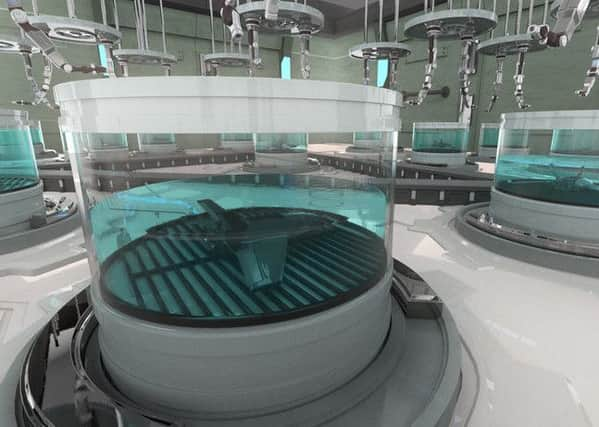BAE unveils '˜grown' jets


The ideas might appear straight out of a science fiction novel but engineers say they are working with universities and other firms to make the fiction become fact.
During this century, the scientists and engineers say small Unmanned Air Vehicles made for specific military operations, could be grown in large-scale labs through chemistry, speeding up evolutionary processes and creating bespoke aircraft in weeks, rather than years.
Advertisement
Hide AdAdvertisement
Hide AdAlready scientists are working on a radical new machine called a Chemputer could enable advanced chemical processes to grow aircraft and some of their complex electronic systems, from a molecular level upwards.
It could also be used to produce hi-tech parts for large manned aircraft.
In addition, armed forces of the future could be using rapid response aircraft equipped with engines capable of propelling them to hypersonic speeds.
They would use technology similar to the Synergetic Air-Breathing Rocket Engine which is currently being developed by Reaction Engines Limited, a small British company in which BAE Systems has invested £20.6m.
Advertisement
Hide AdAdvertisement
Hide AdFlying at such high speeds and altitude would allow them to outpace enemy missiles
Professor Nick Colosimo, a BAE Systems global engineering fellow said: “The world of military and civil aircraft is constantly evolving and it’s been exciting to work with scientists and engineers outside BAE Systems and to consider how some unique British technologies could tackle the military threats of the future.”
Regius Professor Lee Cronin at the University of Glasgow, and founding scientific director at Cronin Group, which is developing the Chemputer said: ‘This is a very exciting time in the development of chemistry.
“We have been developing routes to digitise synthetic and materials chemistry and at some point in the future hope to assemble complex objects in a machine from the bottom up, or with minimal human assistance.”